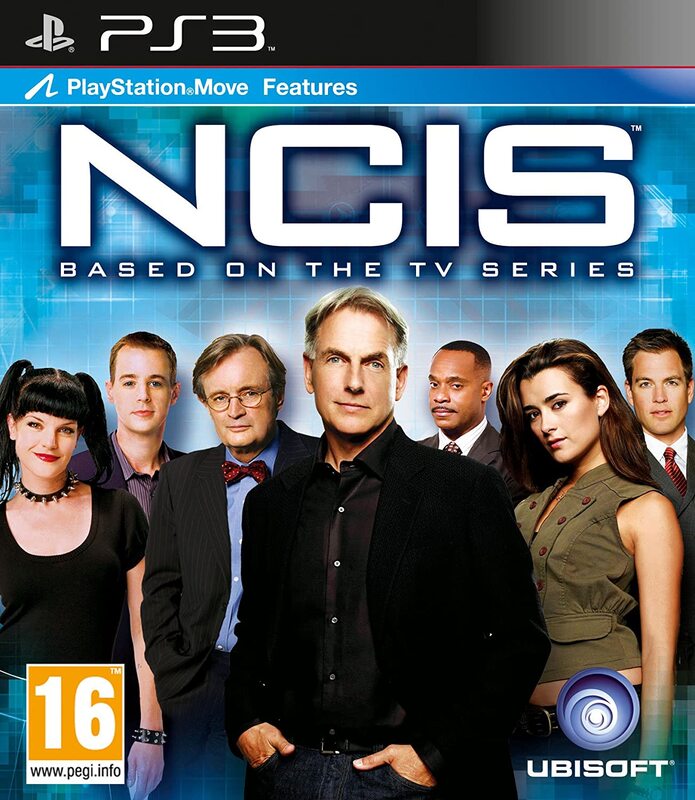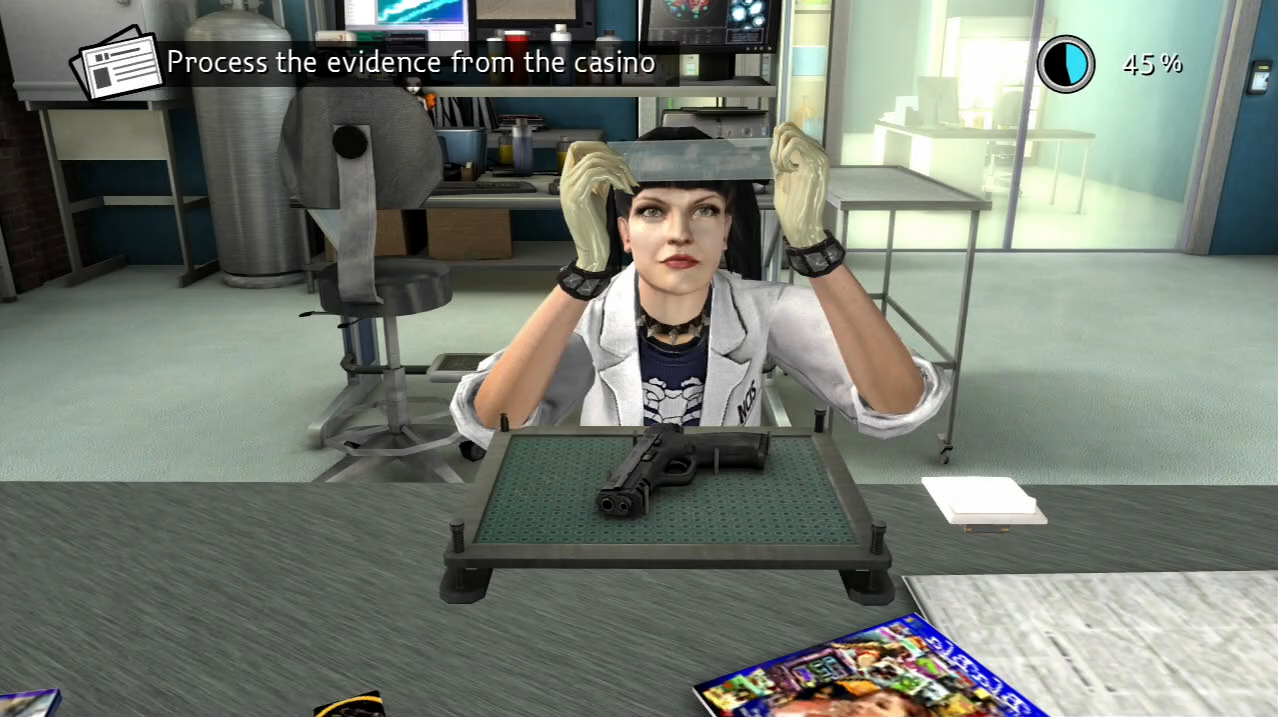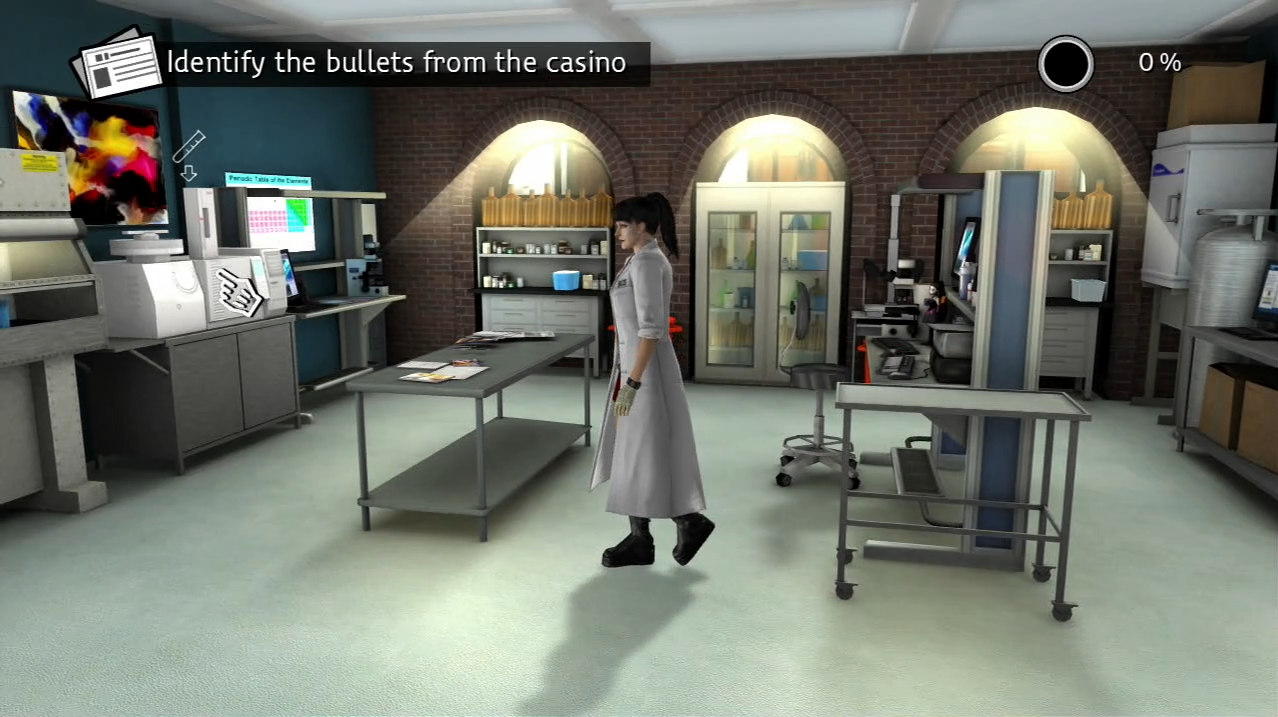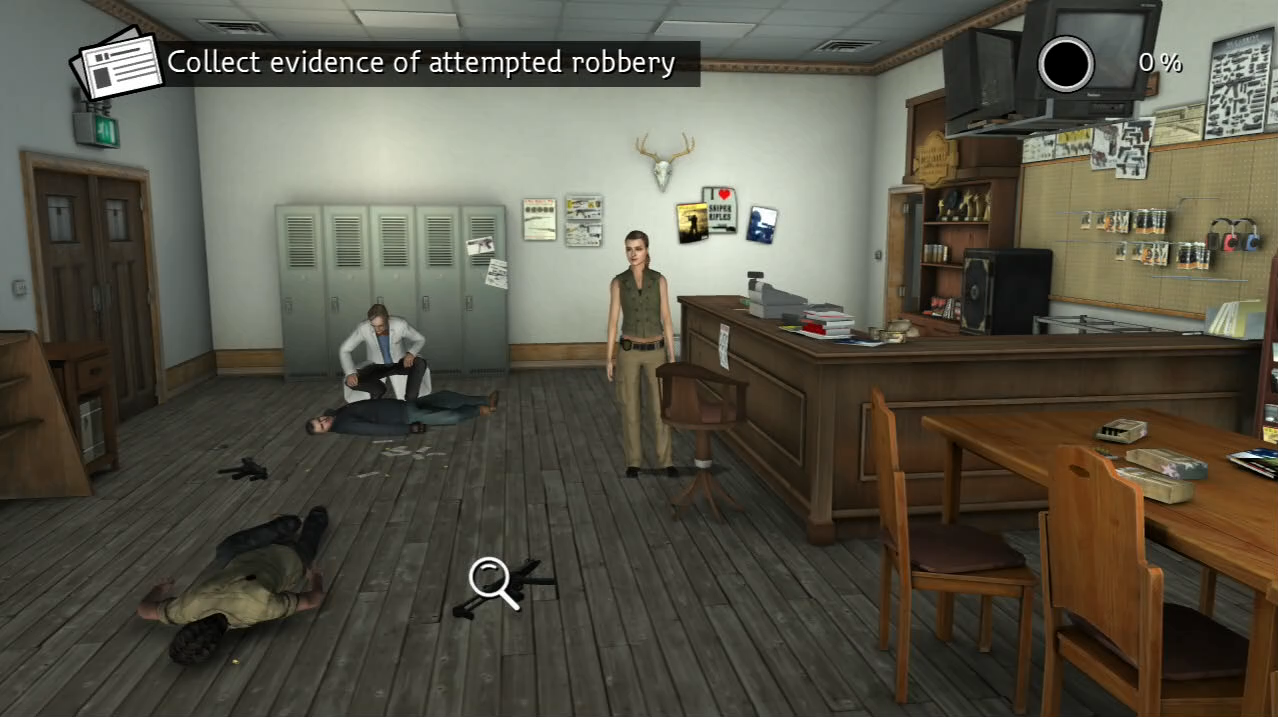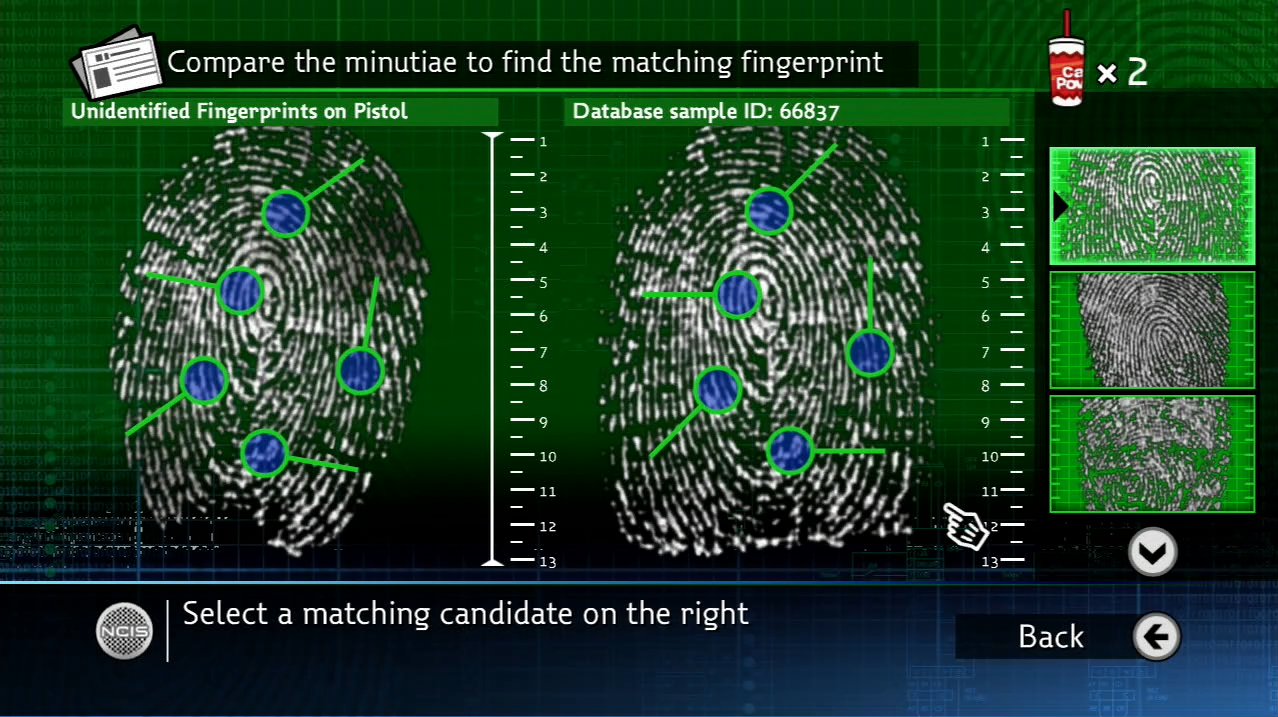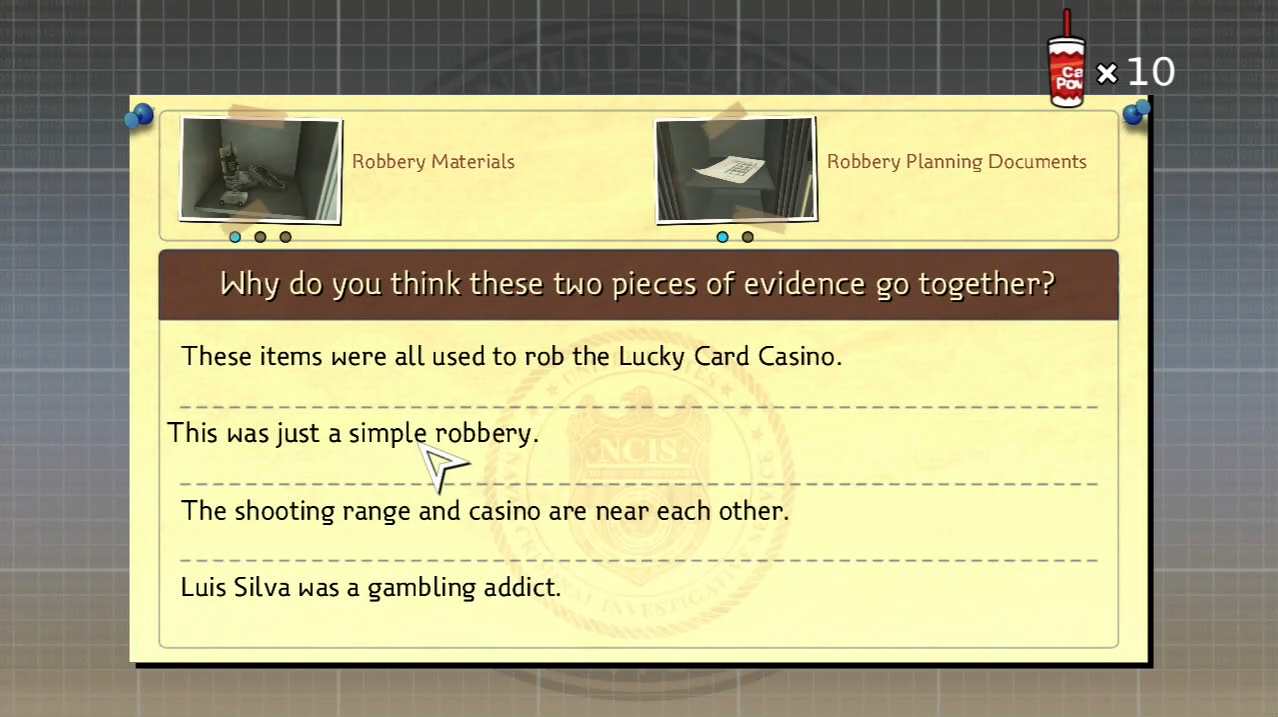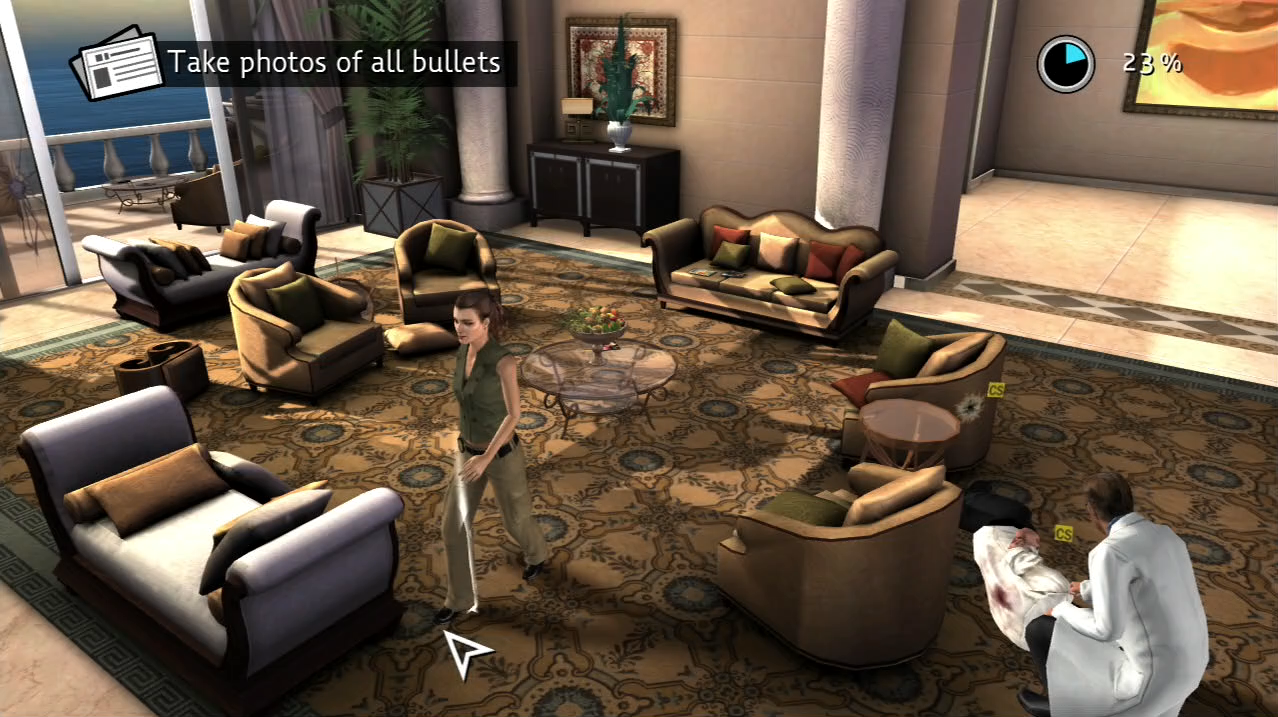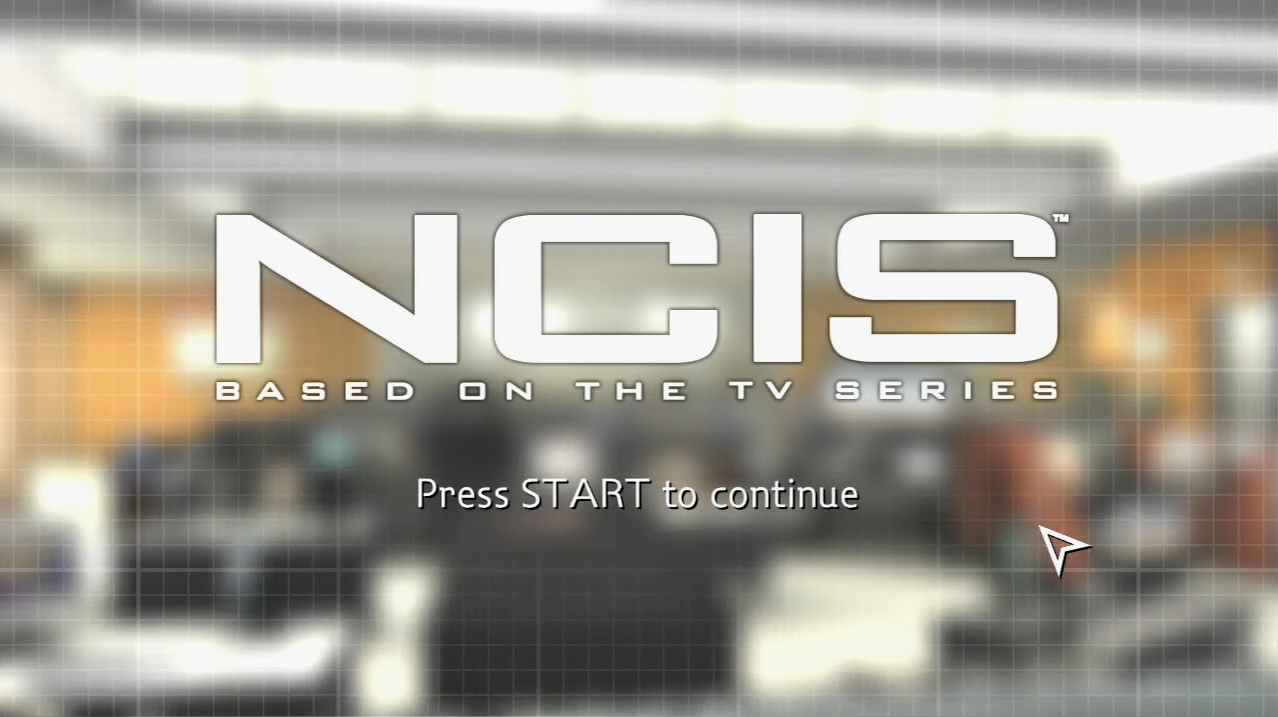NCIS BASED ON THE TV SERIES (PS3)
Time has seen NCIS Based on the TV Series fall between the cracks in the gaming pavement, alongside a slew of other seventh-generation small-screen adaptations like Lost: Via Domus and Law & Order: Legacies. A brief appraisal of Ubisoft Shanghai’s title, which blends narrative-driven investigative elements with a sequence of undemanding mini-games, will no doubt sound familiar. Here goes, anyway: NCIS is not a terrible game. It’s not especially flawed. What it is, however, is dull and painfully formulaic. It recreates the crime scene action of the show in a manner that’s competent but entirely unambitious.
NCIS plays out like four episodes of the TV show, each one beginning with an introductory video, followed by an initial crime scene. From here, the baton is passed between a forensic lab for examining evidence, a morgue for determining a cause of death and an office for everything relating to tracking a suspect. Repeat visits to the deduction board help keep the player abreast of evolving cases, even if the player is rather led by the hand.
There's lots of processing to be done, mostly in the form of short mini-games
The crime scenes are easily the strongest part of the game. The player navigates via a pointer arrow, which allows for the examination of scenery and the unearthing of clues. They’re nothing groundbreaking, but do exhibit some reasonable-looking 3D spaces that include a bank, a firing range and a military barracks. Having fellow members of the team milling around adds a little atmosphere and should you come unstuck, they can be approached for clues on where to focus your investigations.
There isn’t a great deal to be said for the remainder of the game. Everything works seemingly as intended, but most of it comprises the kind of image-match puzzles and simple memory tests you’d expect of a mobile game of the time. Even a relatively casual gamer will have encountered all of these tropes before, save possibly for the safe-cracking, which involves careful rotation of the left analogue stick. These bits are satisfying enough, though very short-lived.
There isn’t a great deal to be said for the remainder of the game. Everything works seemingly as intended, but most of it comprises the kind of image-match puzzles and simple memory tests you’d expect of a mobile game of the time. Even a relatively casual gamer will have encountered all of these tropes before, save possibly for the safe-cracking, which involves careful rotation of the left analogue stick. These bits are satisfying enough, though very short-lived.
The story plays a large role in proceedings and it works best when NCIS sticks to business, driving forward the investigation into each crime. Each episode deserves some credit for its divergent mix of locations, witnesses and surprises, even if the modus operandi behind each killing is quite similar. Ironically, where it starts to lose points is in its brave attempts to build broader narrative connections beyond merely the crime scenes. Elements of character building are so tedious and cringe-worthy, that it’s almost distressing.
Unfortunately, the vast majority of actors from the series don’t reprise their roles and whilst the writing isn’t too bad, the acting is lacking nuance. Tony DiNozzo's easy wit comes across a little bit Glen Quagmire whilst his foil, Ziva, seems to have her Israeli heritage reinterpreted as ‘talking like an android’, with a strange habit of pronouncing everything crystal-clearly yet with a monosyllabilism that’s so bizarre, it’s almost comical. Lab-lurker Abs, voiced here by Betsy Moore, is pretty good, giving vim and drive to many of the scenes. The same can be said of mortician Ducky, the only one of the main figures to be voiced by his series counterpart, David McCallum. Sadly, episode-long threads about a secret admirer leaving flowers for Ziva and a competition as to who can drink the most coffee see you losing the will to live.
Unfortunately, the vast majority of actors from the series don’t reprise their roles and whilst the writing isn’t too bad, the acting is lacking nuance. Tony DiNozzo's easy wit comes across a little bit Glen Quagmire whilst his foil, Ziva, seems to have her Israeli heritage reinterpreted as ‘talking like an android’, with a strange habit of pronouncing everything crystal-clearly yet with a monosyllabilism that’s so bizarre, it’s almost comical. Lab-lurker Abs, voiced here by Betsy Moore, is pretty good, giving vim and drive to many of the scenes. The same can be said of mortician Ducky, the only one of the main figures to be voiced by his series counterpart, David McCallum. Sadly, episode-long threads about a secret admirer leaving flowers for Ziva and a competition as to who can drink the most coffee see you losing the will to live.
Character models actually look fairly nice, though as a whole, the presentation suffers from bland visuals, wooden movement animations and forgettable music. For a TV series that once bullishly claimed it was only like CSI “if you’re dyslexic” (some tag lines age better than others), NCIS remains dogged by the spectre of the superior Las Vegas series. Perhaps fittingly then, the biggest obstacle in recommending NCIS Based on the TV Series is that it’s a distant second-best to CSI: Fatal Conspiracy, released the previous year.
Similarly published by Ubisoft (who had their fingers in many crime scene pies), the Telltale-developed Fatal Conspiracy proves a better investigation title by just about every metric in which the two games could be compared. It has more involved gameplay and a stronger storyline. The voicing is less patchy, the visual design is more interesting and more varied. You can cross-examine suspects and challenge them with evidence, rather than simply pressing a prompt to interrupt a witness or keep them talking. Its mini-games feel relevant to the evidence being examined and the broader narrative across all of its episodes was better handled. NCIS’s crimes feel too similar, too closely linked, meaning none of its episodes stand out as memorable.
Similarly published by Ubisoft (who had their fingers in many crime scene pies), the Telltale-developed Fatal Conspiracy proves a better investigation title by just about every metric in which the two games could be compared. It has more involved gameplay and a stronger storyline. The voicing is less patchy, the visual design is more interesting and more varied. You can cross-examine suspects and challenge them with evidence, rather than simply pressing a prompt to interrupt a witness or keep them talking. Its mini-games feel relevant to the evidence being examined and the broader narrative across all of its episodes was better handled. NCIS’s crimes feel too similar, too closely linked, meaning none of its episodes stand out as memorable.
The crime scenes are the most interactive and enjoyable parts of the game, though they lack variety
With no real divergence in how an investigation might play out, there’s little replay value to speak of. If you can look past NCIS’s labouring storyline, there’s the basis for an adequate but entirely forgettable investigation game that might hold some interest for committed fans of the series. For everyone else, there are better alternatives on the market, meaning it’s unlikely to live long in the memory.
